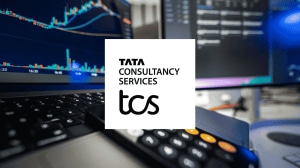By Randeep Sharma
The establishment of a regulatory framework in the dynamic realm of virtual digital assets (VDA) has sparked intense deliberation. As VDAs and web3 continue to gain prominence, along with the increasing popularity of decentralized finance (DeFi) platforms, the urgency to institute effective regulations has amplified. One approach, which has exhibited success in various sectors, involves the implementation of Self-Regulatory Organizations (SROs). SROs have demonstrated their efficacy in upholding market integrity, safeguarding stakeholders, and fostering transparency. By examining the accomplishments of Japan’s SRO for crypto assets and the SROs governing the broadcasting industry in India, we can discern the pivotal role an SRO could play as an initial stride towards regulating the VDA sector.
SROs, as their name implies, are organizations vested with regulatory authority over specific industries or sectors. Through collaboration with governmental bodies, SROs assume a vital role in establishing and upholding industry standards, rules, and regulations. Their primary objective is to ensure adherence to these regulations, preserve market integrity, and safeguard the interests of stakeholders. SROs operate on the fundamental belief that industry participants possess the most comprehensive understanding of the intricacies and dynamics within their respective sectors, placing them in an advantageous position to regulate themselves effectively. By harnessing their expertise and knowledge, SROs develop and enforce regulations that address the distinctive challenges and risks encountered by the industry. This approach fosters transparency, equitable practices, and ethical conduct, thereby promoting an environment conducive to fair operations.
To illustrate the effectiveness of SROs, let us examine the case of Japan. The Financial Services Agency (FSA), Japan’s top financial regulatory watchdog, recognized two crypto SROs in April 2020. The Japan Virtual Currency Exchange Business Association (JVCEA) and the Japan Security Token Offering Association (JSTOA) became part of the broader group of financial exchange associations. The JVCEA, established in 2018 after the FSA allowed market participants to create an SRO, was renamed the Japan Crypto Asset Trading Business Association (JCATBA) while maintaining its original mandate of developing rules for VDA exchanges in the country. In the case of FTX, SRO helped insulate FTX Japan and its investors from heavy losses. This demonstrates how SROs can effectively regulate the VDA sector, providing oversight and ensuring compliance within the industry.
Drawing parallels from other industries, we can observe the significant impact SROs have had. In the United States, the Financial Industry Regulatory Authority (FINRA) oversees and regulates the securities industry. It sets industry standards, maintains market integrity, and protects investors from fraudulent practices. Through tools such as market surveillance, risk monitoring, and investor education programs, FINRA ensures compliance with its regulations, imposing fines and other penalties on violators. SROs like AMFI in India have also played a crucial role in promoting transparency and growth in the financial market, protecting investors from fraudulent practices, and creating a level playing field for all participants. These examples highlight how SROs contribute to a more stable and resilient financial system.
Applying these principles to the VDA sector, the intervention of an SRO could provide the much-needed regulatory clarity and investor protection. Creating standards for this industry would take time and setting up an SRO can be the first step and low hanging fruits like creation of standards for customer grievance could be addressed. The primary objective of a VDA-focused SRO would be the development and enforcement of VDA standards, keeping in mind the novel aspect of crypto. By streamlining the discourse around legislative needs, an SRO could bring together industry stakeholders to develop unified approaches to regulation. The operations of an SRO could be funded by the industry as a whole, ensuring a sustainable and self-regulating mechanism. Moreover, an SRO could serve as a mechanism to assess the necessity for additional legislation and facilitate the consensus-building process regarding its scope and nature. Standards formulated through an SRO process exhibit greater flexibility compared to those established by new legislation. These standards can be readily refined based on insights gained from their practical implementation and in response to evolving market dynamics.
Incorporating these principles into the VDA sector, the involvement of an SRO holds the potential to deliver essential regulatory clarity and safeguard investor interests. By facilitating coordinated discussions on legislative requirements, an SRO could unite industry stakeholders in developing harmonized regulatory strategies. Funding for the SRO’s operations could be derived from the collective contributions of the industry, ensuring a sustainable and self-regulatory mechanism.
To summarize – the implementation of an SRO as a first step towards regulating the VDA sector holds immense potential. Drawing from successful examples in other industries, such as Japan’s crypto SRO and India’s broadcasting industry SROs, it is clear that SROs play a crucial role in ensuring compliance, maintaining market integrity, and protecting stakeholders’ interests. With the rapidly evolving nature of VDA, an SRO can provide the necessary oversight and is the proper way to develop standards for crypto-assets at the outset. By empowering industry participants and promoting collaboration between stakeholders, an SRO can pave the way for a more secure VDA landscape, building trust and confidence among market participants.
The author is senior counsel , North East of India










